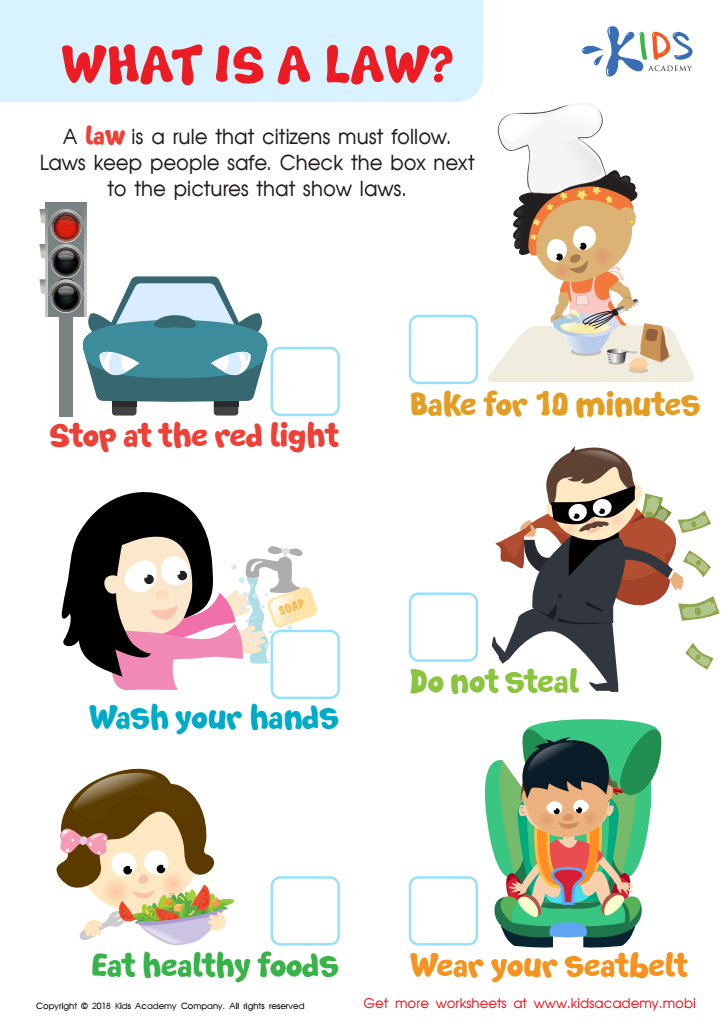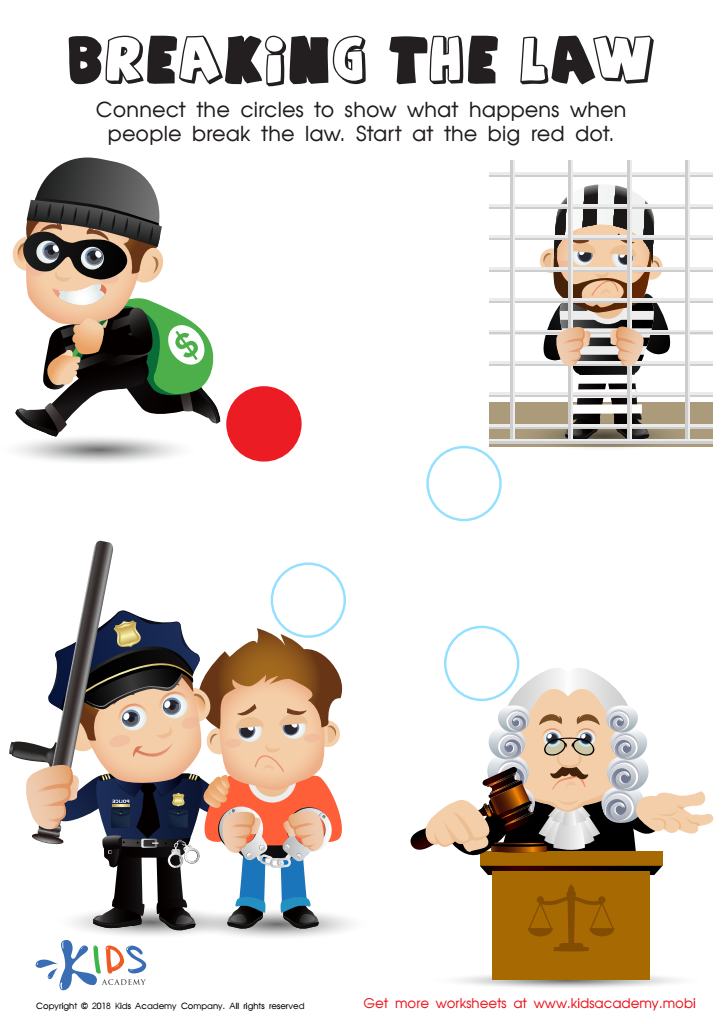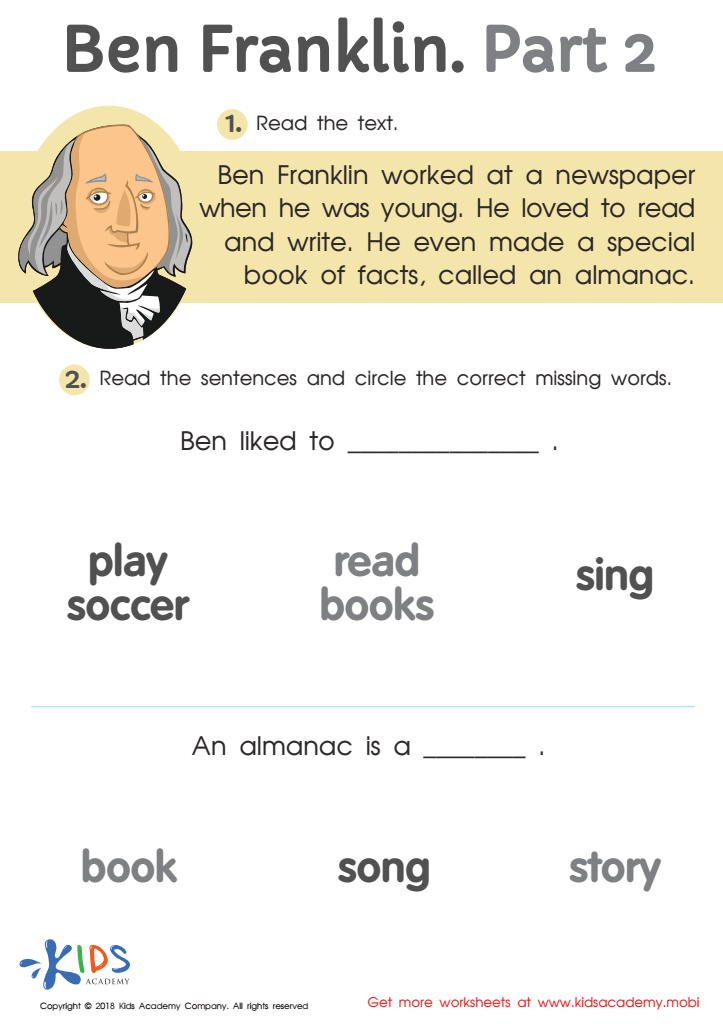Critical Thinking Normal Governance and Civics Worksheets for Ages 4-7
3 filtered results
-
From - To
Enhance your child's development with our Critical Thinking Normal Governance and Civics Worksheets, designed specifically for ages 4-7. These engaging resources encourage young learners to explore essential concepts of governance and civic responsibility while honing their critical thinking skills. Through interactive activities and thought-provoking scenarios, children will learn about citizenship, community roles, and the importance of making informed decisions. Our worksheets foster curiosity and facilitate discussions, helping young minds grasp the foundations of democracy and social awareness. Perfect for home or classroom use, these worksheets make learning fun and meaningful, ensuring that your child builds essential skills for a brighter future.


What is a Law? Worksheet


Breaking the Law Worksheet


Ben Franklin Part 2 Worksheet
Parents and teachers should prioritize Critical Thinking, Normative Governance, and Civics for children aged 4-7 as these foundational skills shape responsible, engaged, and thoughtful citizens. At this age, children are naturally curious and can grasp basic concepts of fairness, rules, and community, making it an ideal time to introduce critical thinking. By encouraging them to ask questions, evaluate situations, and consider different perspectives, we lay the groundwork for analytical skills that will serve them throughout life.
Understanding normative governance helps children appreciate the importance of rules, both in their personal lives and in society. It teaches them how decisions are made in communities and why cooperation and respect are essential in group settings. Moreover, early exposure to civics instills a sense of belonging and responsibility, helping children understand their rights and duties as members of a community.
By integrating these concepts into daily interactions and educational activities, parents and teachers foster problem-solving abilities and empathy. Ultimately, nurturing critical thinking and civics awareness creates informed, active citizens ready to contribute positively to society, thus empowering the next generation to engage with and improve their world.
 Assign to My Students
Assign to My Students










